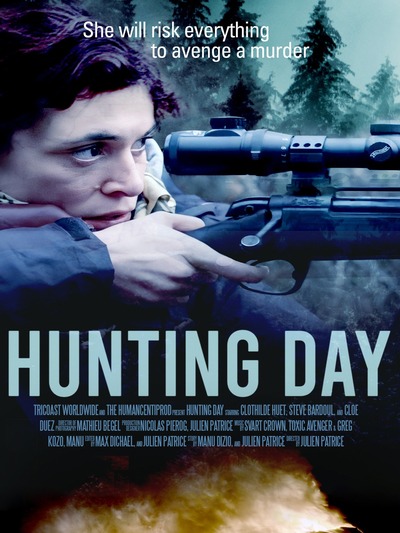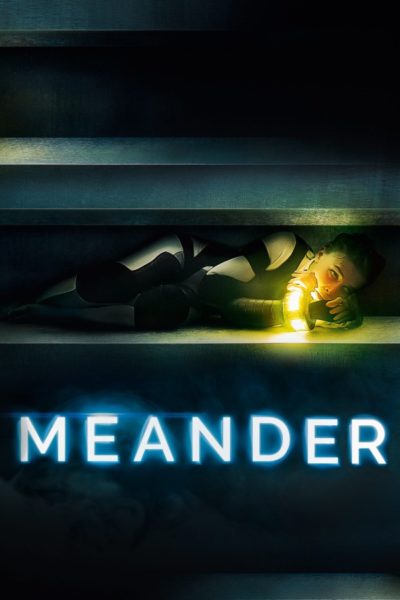★★
“I am very confused.”
 I like to think I am not an idiot. I can assemble words into a coherent order, perform fairly complex mental arithmetic with reasonable accuracy, and recently connected a printer to my wife’s computer on the first attempt. So, when I tell you I did not understand this film… I really did not understand this film. I’ve seen movies before, where I may be unclear on some points. But I could still provide a reasonably detailed synopsis. Here? I am utterly at sea, beyond the most basic level, to the point I’m wondering how the heck I will be able to reach my standard five hundred words. How many can I spend describing my bemusement?
I like to think I am not an idiot. I can assemble words into a coherent order, perform fairly complex mental arithmetic with reasonable accuracy, and recently connected a printer to my wife’s computer on the first attempt. So, when I tell you I did not understand this film… I really did not understand this film. I’ve seen movies before, where I may be unclear on some points. But I could still provide a reasonably detailed synopsis. Here? I am utterly at sea, beyond the most basic level, to the point I’m wondering how the heck I will be able to reach my standard five hundred words. How many can I spend describing my bemusement?
I do have to admire the fact the film unfolds entirely without dialogue. Not a single word. It’s the kind of brave artistic choice which deserves respect. However, I have to say, it likely hurts the film more than it helps, and ends up feeling like an artistic conceit. Going by the IMDb, co-writer/director Patrice has no other credits beyond being executive producer, on a film currently in post-production. Yet this kind of gimmick movie screams out for someone with experience and a firm grasp of cinematic language. Somebody with a proven capacity for telling a story with dialogue. You need to work up to this kind of thing, otherwise you will potentially be leaving both yourself and, more importantly, the viewer, adrift and confused.
The IMDb synopsis is: “Deep in a threatening forest, Sarah faces off with the brutal hunter who killed her sister. Its a cat and mouse fight for survival.” No argument there. It’s just the large amount of stuff going around the edges, from which my confusion stems. For example, not long after Sarah (Huet) arrives in the forest, she starts seeing a young girl in a sheep’s head mask. Is that supposed to be her sister? If so, does this indicate Sarah is barking mad? In turn, would that mean nothing else we see or hear is trustworthy? Not least at the end, things spiral off into a resolution which is not, followed by a post-credit moment that then throws everything into doubt.
It all simply left me with too many questions, though other elements were fine. This is nicely photographed, and Huet does as much as she can, without words to express herself. The same goes for Duez as her (dead?) sister, and Bardoul, in the role of the hunter. But another seeming misstep is Patrice’s decision to tell the story out of chronological order. I’m unclear what he was trying to achieve with this, but the net result was another element coming between the audience, and any emotional reaction to events as they unfold. I tried. I really did, to the point I watched this twice (at a 72-minute running time, it could have been worse). In the end though, I’m convinced of one thing: I’m not the problem here.
Dir: Julien Patrice
Star: Clothilde Huet, Cloe Duez, Steve Bardoul





 I guess the title is trying to riff off Gang’s of New York, though this is set significantly later. It begins in 1884, when the Apache gang run the Parisian underworld. Young orphans Billie, Paulie and Tricky are on the fringes, until Tricky is killed when forced to play Russian roulette by the gang’s leader, Jésus (Schneider). Billie is framed for the death by a corrupt cop, and spends fifteen years in jail. When she gets out, now a grown woman, Billie (Isaaz) seeks revenge on all those responsible for Tricky’s death, infiltrating the Apaches to get close to Jésus. Matters are complicated, by the presence in the gang of Paulie (Paradot), who was brought up by Jésus, and also by the seductive nature on her of the Apache lifestyle.
I guess the title is trying to riff off Gang’s of New York, though this is set significantly later. It begins in 1884, when the Apache gang run the Parisian underworld. Young orphans Billie, Paulie and Tricky are on the fringes, until Tricky is killed when forced to play Russian roulette by the gang’s leader, Jésus (Schneider). Billie is framed for the death by a corrupt cop, and spends fifteen years in jail. When she gets out, now a grown woman, Billie (Isaaz) seeks revenge on all those responsible for Tricky’s death, infiltrating the Apaches to get close to Jésus. Matters are complicated, by the presence in the gang of Paulie (Paradot), who was brought up by Jésus, and also by the seductive nature on her of the Apache lifestyle.  Not to be mixed up with
Not to be mixed up with  This French film takes place a little way into the future, though society has undergone radical changes. Law enforcement is now privatized, with investigations contracted out to private investigators, who have to balance their costs in order to turn a profit on the cases they accept. One such PI is Blondie Maxwell (Langlart) – and to get the obvious out of the way first, no, she is
This French film takes place a little way into the future, though society has undergone radical changes. Law enforcement is now privatized, with investigations contracted out to private investigators, who have to balance their costs in order to turn a profit on the cases they accept. One such PI is Blondie Maxwell (Langlart) – and to get the obvious out of the way first, no, she is  I guess, if you want to watch a woman crawling along a series of ducts for an hour and a half, this is the film for you. I’m afraid it’s just not a particular fetish I share, so the appeal of this is largely lost to me. Lisa (Weiss) lost her daughter in a tragic accident and has been plagued by guilt ever since. She wants to end it all, and to that end, is lying in the middle of the road, when she is convinced to accept a lift from passing drive, Adam (Franzén). Except, he turns out to be a roaming serial killer, who knocks her out. This is where it gets weird, since she recovers consciousness to find herself in a twisty little maze of passages, all alike.
I guess, if you want to watch a woman crawling along a series of ducts for an hour and a half, this is the film for you. I’m afraid it’s just not a particular fetish I share, so the appeal of this is largely lost to me. Lisa (Weiss) lost her daughter in a tragic accident and has been plagued by guilt ever since. She wants to end it all, and to that end, is lying in the middle of the road, when she is convinced to accept a lift from passing drive, Adam (Franzén). Except, he turns out to be a roaming serial killer, who knocks her out. This is where it gets weird, since she recovers consciousness to find herself in a twisty little maze of passages, all alike. I was really surprised to discover that this French film is actually made for television. It has a certain gravitas and thoughtfulness to it, that you rarely find in a genre which is (often rightfully) derided as being formulaic and cliched. This doesn’t escape those criticisms entirely – in particular, there’s a “Disease of the Week” subplot, which does feel as it it might have strayed in from Lifetime or Hallmark. However, even there, it feels handled in a relatively natural manner, rather than being shoehorned in there to elicit sympathy from the viewer. It definitely looks better than most TVMs out of Hollywood. Whether this is down to Félix von Muralt’s cinematography, or simply the stunning Alpine landscapes, is open to debate.
I was really surprised to discover that this French film is actually made for television. It has a certain gravitas and thoughtfulness to it, that you rarely find in a genre which is (often rightfully) derided as being formulaic and cliched. This doesn’t escape those criticisms entirely – in particular, there’s a “Disease of the Week” subplot, which does feel as it it might have strayed in from Lifetime or Hallmark. However, even there, it feels handled in a relatively natural manner, rather than being shoehorned in there to elicit sympathy from the viewer. It definitely looks better than most TVMs out of Hollywood. Whether this is down to Félix von Muralt’s cinematography, or simply the stunning Alpine landscapes, is open to debate. Netflix describes this as “Charlie’s Angels meets Lupin, with a dash of Killing Eve.” Um. About that… While I haven’t seen Lupin, I can confidently state any similarity to the others is tangential at best. For example, the only thing this really has in connection with Charlie’s Angels, is that there’s three of them. But here, it’s more like 2.25, since the third member is largely useless. It’s almost entirely the story of Carole (Laurent) and Alex (Exarchopoulos), two thieves who work for the enigmatic Marraine (Adjani). But Carole has discovered she’s pregnant and wants out of the business. Marraine is not happy, but agrees, providing Carole does that hoariest of film clichés: One Last Job.
Netflix describes this as “Charlie’s Angels meets Lupin, with a dash of Killing Eve.” Um. About that… While I haven’t seen Lupin, I can confidently state any similarity to the others is tangential at best. For example, the only thing this really has in connection with Charlie’s Angels, is that there’s three of them. But here, it’s more like 2.25, since the third member is largely useless. It’s almost entirely the story of Carole (Laurent) and Alex (Exarchopoulos), two thieves who work for the enigmatic Marraine (Adjani). But Carole has discovered she’s pregnant and wants out of the business. Marraine is not happy, but agrees, providing Carole does that hoariest of film clichés: One Last Job. As the above suggests, I was getting a strong manga influence, in particular from the works of Hayao Miyazaki: it feels like the script could have been something he’d have written on a gloomy Wednesday in January. Feisty teenage heroine? Check? Ecological message? Check. For this takes place after some kind of change in the world, which has left the bulk of the population clinging on to existence by their grubby fingernails, in a world now owned by bizarre flora. Vesper (Chapman) is one such, tending to her paralyzed father (Brake) whose consciousness has been transferred into a drone. She trades with her uncle, Jonas (Marsan), swapping blood for the seeds they need to survive.
As the above suggests, I was getting a strong manga influence, in particular from the works of Hayao Miyazaki: it feels like the script could have been something he’d have written on a gloomy Wednesday in January. Feisty teenage heroine? Check? Ecological message? Check. For this takes place after some kind of change in the world, which has left the bulk of the population clinging on to existence by their grubby fingernails, in a world now owned by bizarre flora. Vesper (Chapman) is one such, tending to her paralyzed father (Brake) whose consciousness has been transferred into a drone. She trades with her uncle, Jonas (Marsan), swapping blood for the seeds they need to survive. June Williamson (Guillot) is an out-of-work actress, who just broke up with her boyfriend, Oliver (Vernet), and is behind on the rent to her creepy landlord. An unexpected lifeline arrives in the shape of a very well paid gig, house-sitting a large house, deep in the countryside. Things get annoying when Oliver and his asshole pal Marcel (Thevenoud) show up. They get worse when Oliver admits they had an accident on the way, and there’s a body in the car boot. A stare of “terrible” is reached when the body vanishes. And we reach peak awful, when the house comes under siege from Wolfströeme (Bary) and his heavily-armed gang of mercy, who are looking for…
June Williamson (Guillot) is an out-of-work actress, who just broke up with her boyfriend, Oliver (Vernet), and is behind on the rent to her creepy landlord. An unexpected lifeline arrives in the shape of a very well paid gig, house-sitting a large house, deep in the countryside. Things get annoying when Oliver and his asshole pal Marcel (Thevenoud) show up. They get worse when Oliver admits they had an accident on the way, and there’s a body in the car boot. A stare of “terrible” is reached when the body vanishes. And we reach peak awful, when the house comes under siege from Wolfströeme (Bary) and his heavily-armed gang of mercy, who are looking for… I liked this considerably better than its predecessor. Part of that was, perhaps, knowing what to expect going in: a minimalist retelling, with occasional musical numbers. Except, this proved rather more than minimalist (though still very restrained), and there was hardly any singing at all. Curse you, Dumont, for confounding my expectations. It begins, much as Jeanette ended: with a lot of standing around in sand-dunes, chatting. However, the cast this time cannot be counted on the fingers of one hand, and there aren’t any staggeringly bad performances to take you out of the movie. You still don’t get any great battles. Instead, these are basically represented by team dressage, two groups of horses and riders, swirling around near each other.
I liked this considerably better than its predecessor. Part of that was, perhaps, knowing what to expect going in: a minimalist retelling, with occasional musical numbers. Except, this proved rather more than minimalist (though still very restrained), and there was hardly any singing at all. Curse you, Dumont, for confounding my expectations. It begins, much as Jeanette ended: with a lot of standing around in sand-dunes, chatting. However, the cast this time cannot be counted on the fingers of one hand, and there aren’t any staggeringly bad performances to take you out of the movie. You still don’t get any great battles. Instead, these are basically represented by team dressage, two groups of horses and riders, swirling around near each other.